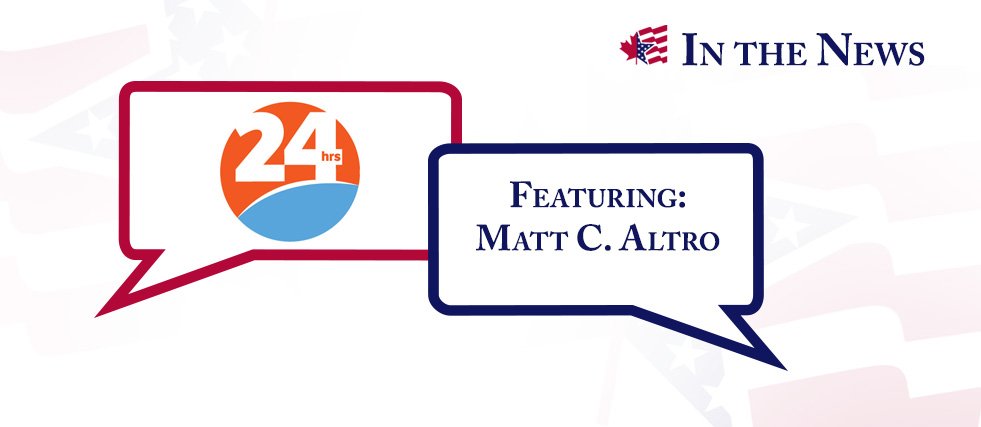Matt C. Altro was recently interviewed for an article which has appeared in the Finance section of the 24hrs newspaper in Toronto and Vancouver. In the article, Matt answers commonly asked questions about the potential for more days in the US for Canadians, and the possible consequences of doing so. Click here to to view the article online (select the date: October 22 2013 and Page 15) or scroll down to read the piece where Matt is quoted.
Snowbirds Beware – US bill could allow retirees to stay south longer – but at a potential cost
LINDA WHITE
24hrs
Tuesday, October 22, 2013
As snowbirds across the country plan their annual migration, many hope the U.S. government will green-light a reform bill that would allow them to extend their stay by up to two months.
But the bill could come with costly tradeoffs, including double taxation and loss of health care coverage.
“Snowbirds are scared by custom and border patrol but if all of a sudden those doors swing open to allow you to spend eight months there, they’re going to grab that opportunity,” says Matt Altro, a cross-border financial planner at Altro Levy [an affiliated entity of MCA Cross Border Advisors Inc.].
One of the provisions of the JOLT Act (Jobs Originated through Launching Travel) would allow snowbirds to spend up to eight months – or 240 days – each year in the U.S.
That’s almost two months longer than the current 182 day annual limit.
The Canadian Snowbird Association applauds the inclusion of the JOLT Act in the comprehensive immigration reform legislation. (Of course, the bill has remained in limbo during the U.S. government shutdown.)
But retirees who spend more than 182 days south of the border might be considered a U.S. tax resident. “That means you must now report to the IRS (Internal Revenue Service) on your worldwide income and pay tax,” says Altro.
“At the same time, Canada may still also view you as a tax resident so you could get yourself into hot water. Without proper professional guidance you may find yourself in double taxation.”
That’s not a double-double many Canadians would be eager to swallow.
Staying out of the country that long could also jeopardize your eligibility for health insurance. “On the one side, I see a lot of potential problems for people who don’t realize the impact and don’t plan well but on the other side I see opportunity done right,” says Altro.
“If you structure your exit from Canada properly, you will pay only U.S. income taxes” which are significantly lower than Canadian rates.
“You could end up with more money in your pocket by the end of the year,” he says.
“There are even opportunities for somebody to withdraw their RRSP at much lower tax rates once you become a non-resident of Canada.”
Less well known is a proposed retiree visa for foreign citizens who make a cash purchase of at least $500,000 or more in real property.
That would permit individuals to live in the U.S. year round if they’re 55 years or older, have health coverage and reside for more than 180 days a year.
The visa would be valid for up to three years but may be renewed.
Altro recommends working with a cross-border tax expert who knows both sides of the border — including the implications of estate tax residency — and planning well in advance if the legislation is passed and you’d like to extend the length of your southern stay.

